Description
The SMO-HiFi™ DNA Polymerase is a new genetically modified, recombinant DNA polymerase with fidelity 70 times higher than Taq DNA polymerase during amplification, as well as very high elongation rate. Being highly thermostable, SMO-HiFi™ DNA Polymerase can remain viable even after being subjected to boiling for 2 minutes. The SMO-HiFi™ DNA Polymerase is also designed to operate in much lower Mg2+ concentration as compared to other DNA polymerase products.
Features
5'→3' DNA polymerase activity
3'→5' exonuclease (proofreading) activity
High reaction rate (up to 1 kb/10 seconds)
High fidelity, 70 times higher than Taq DNA polymerase
Blunt end amplicons
Thermo-stable: half-life is more than 10 hrs at 95°C
Storage
[TF1000] SMO-HiFi™ DNA Polymerase
-20°C for 24 months
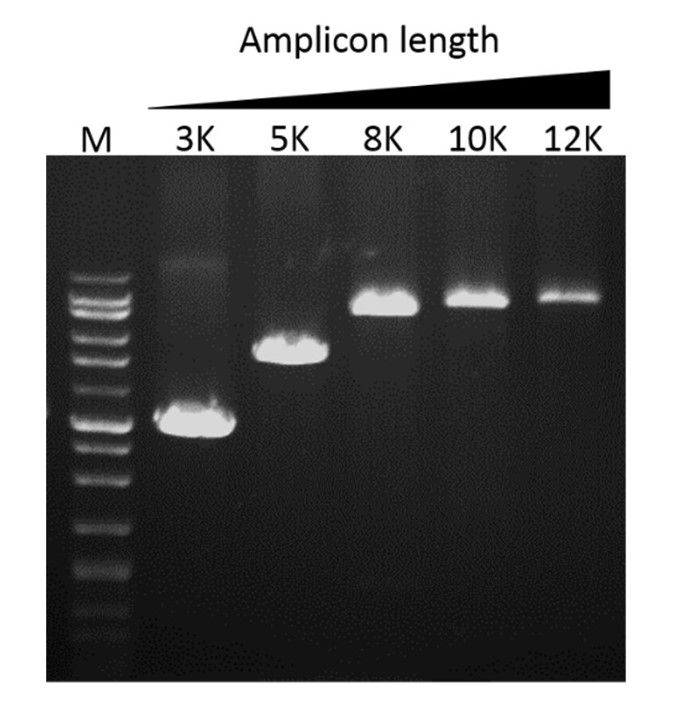
Elongation capability
SMO-HiFi™ DNA Polymerase’s high processability enables reliable amplification of λDNA up to 12 kb in length (M: DM5100).
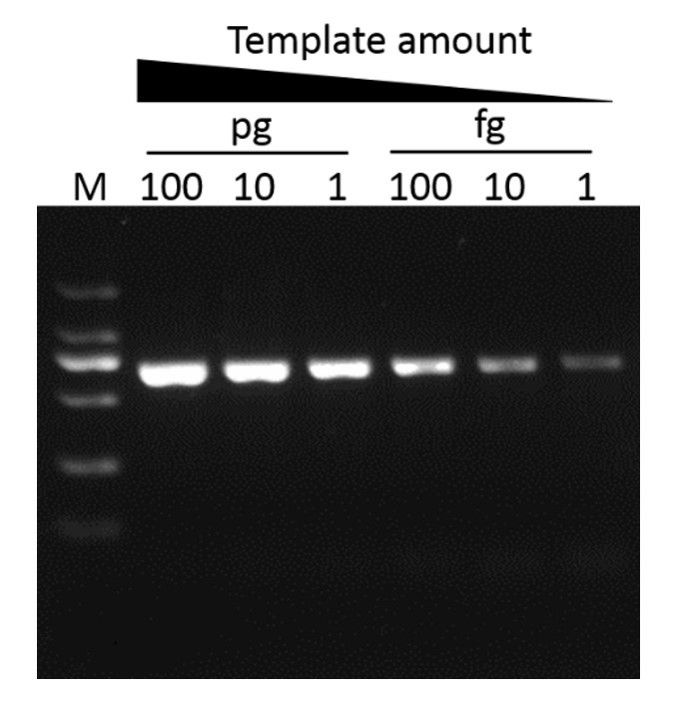
Sensitivity
SMO-HiFi™ DNA Polymerase can amplify PCR products from as little as 1 fg of template DNA (M: DM2000).
[TF1000] SMO-HiFi™ DNA Polymerase
Contents
|
Storage Buffer
50 mM Tris-HCl (pH 8.0), 50 mM KCl, 0.1 mM EDTA, 1 mM DTT, stabilizer, 50% (v/v) glycerol
Unit Definition
One unit is defined as the amount of enzyme that will incorporate 10 nmol of dNTP into acid-insoluble material in 30 minutes at 74°C.
Storage
-20°C for 24 months
What are the differences between SMO-HiFi™ (TF1000) and G-HiFi™ (TF3000)?
Both SMO-HiFi™ (TF1000) and G-HiFi™ (TF3000) are new genetically modified, recombinant DNA polymerase with fidelity 70 times higher than Taq DNA polymerase during amplification.
The accelerated extension rate of G-HiFi™ DNA Polymerase (TF3000) is attained through a unique combination with an elongation enhancer.
Furthermore, TF3000, equipped with an optimized 5x G-HiFi buffer, exhibits the ability to efficiently synthesize long target (up to 40 kb from lambda DNA) and GC-rich DNA templates that are typically challenging to amplify.
Recommended PCR Condition
[TF1000] SMO-HiFi™ DNA Polymerase
|
Template |
1 – 150 ng |
|
Forward primer |
0.1 – 0.5 µM |
|
Reverse primer |
0.1 – 0.5 µM |
|
10X HiFi™ Buffer |
5 µl |
|
MgSO4 (25 mM) |
2 μl |
|
dNTPs Mix (2 mM each) |
5 µl |
|
SMO-HiFi™ DNA Polymerase |
1 µl (1 unit) |
|
DMSO |
5 µl |
|
H2O |
to 50 µl |
|
Total volume |
50 µl |
Recommended PCR Program
Steps | Temp. | Time | Cycles |
Template denature | 94°C | 2 min | 1 |
Denature | 94°C | 15 sec | 25-40 |
Annealing | 50-68°C | 30 sec | |
Extension | 68°C | 30 sec/kb | |
Final extension | 68°C | 1 min | 1 |
*Optimal PCR condition varies according to primers’ thermodynamic properties.
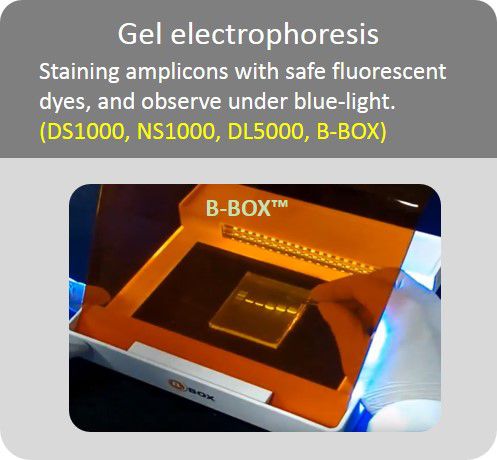
Gel electrophoresis
Staining amplicons with safe fluorescent dyes, following by observation under blue-light illuminator to minimize damage of DNA amplicons and maximize successful cloning efficiency.
Safe fluorescent dyes
[NS1000] FluoroVue™ Nucleic Acid Gel Stain (10,000X), 500 μl
[DS1000] FluoroStain™ DNA Fluorescent Staining Dye (Green, 10,000X), 500 μl
[DL5000] FluoroDye™ DNA Fluorescent Loading Dye (Green, 6X), 1 ml
Blue-light illuminator
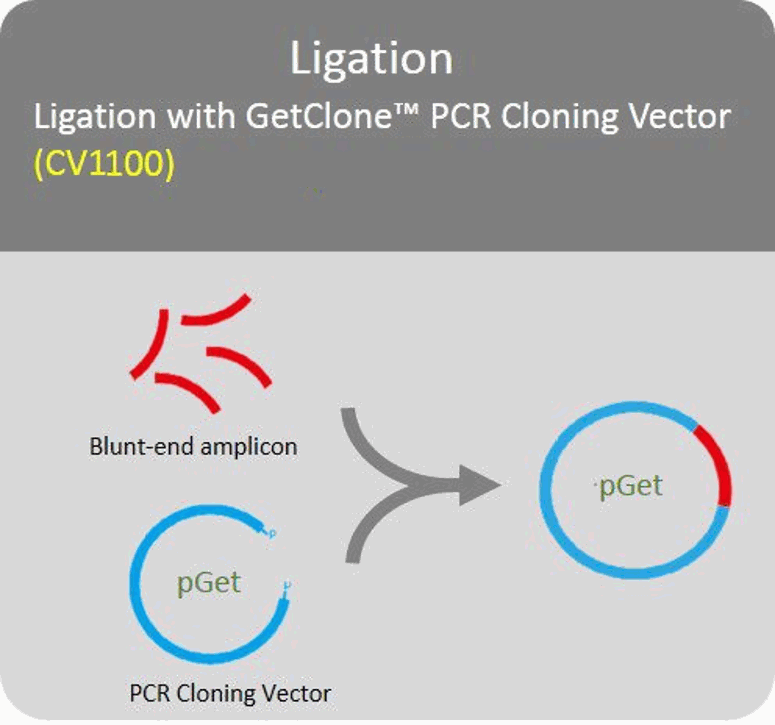
Ligation
Blund-end PCR amplicons can directly ligate with PCR cloning vector.
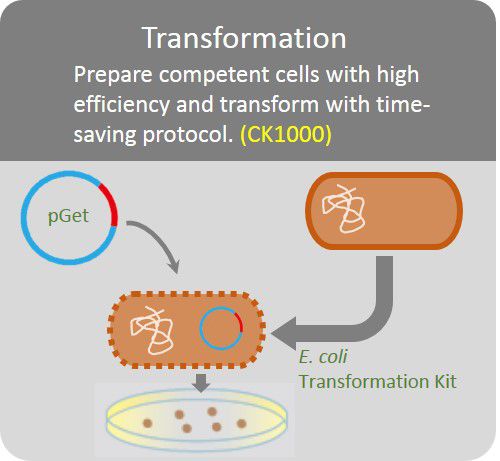
Transformation
Prepare competent cells with high efficiency and transform with time-saving protocol.
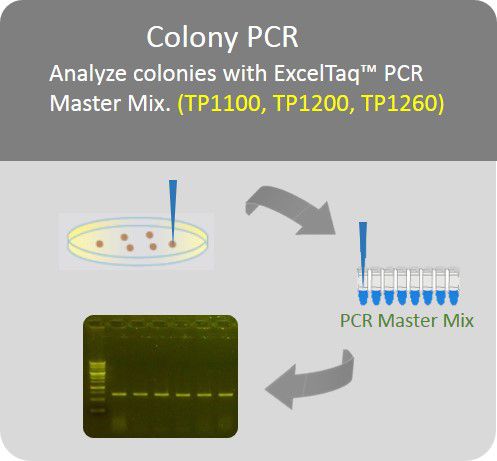
Colony PCR
Analyze colonies with PCR master mix to save preparation time.

![[TF1000] SMO-HiFi™ DNA Polymerase, 1 U/μl, 100 U](/web/image/product.template/389/image?unique=85686e7)
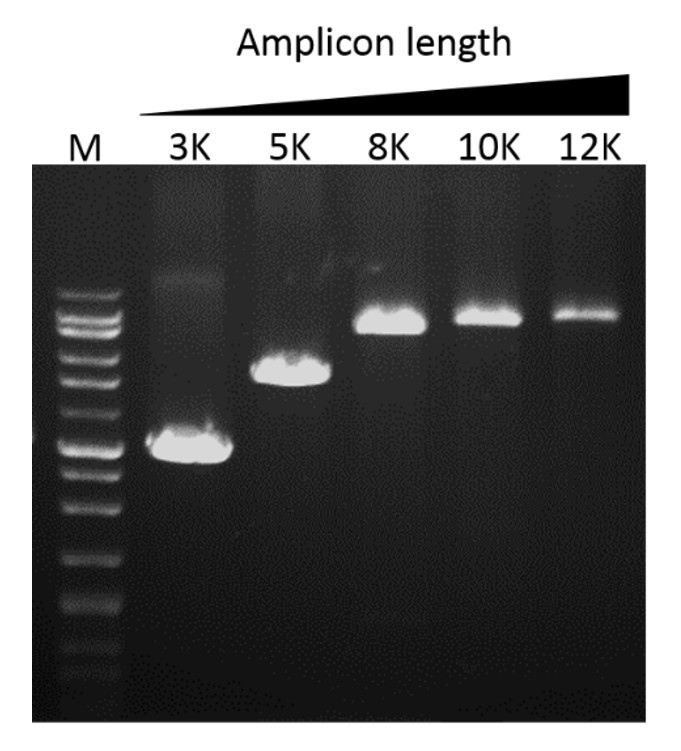

![[TF1000] SMO-HiFi™ DNA Polymerase, 1 U/μl, 100 U](/website/image/product.template/389/image/90x90)

